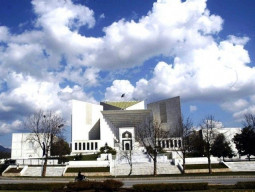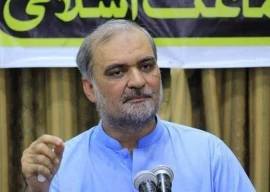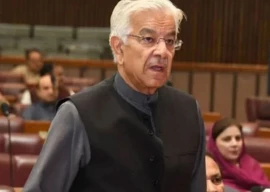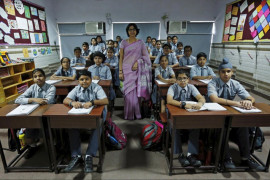
Justice Aamer Farooq issued the order on a petition filed by a private school’s administration challenging the June 20 notification of the Private Educational Institutions Regulatory Authority (Peira) that had imposed a restriction on fee hike.
The judge issued notices to the Capital Administration and Development Division (CADD) and the regulating body seeking replies from them on the petition filed by The City School’s administration and owner till August 30.
The petitioner(s) through their counsel Asma Jahangir said that the restriction on fee hike made the private institutes virtually dysfunctional and prayed before the court to declare the notification illegal.
The counsel contended that the respondents were misleading the public into believing that the government’s policy of decreasing private institutes’ fee was a step towards implementing Article 25-A of the Constitution to hide its inability in fulfilling its constitutional obligation.
“The government’s policy of placing an embargo on reasonable fee increases is a folly. It is misconceived,” the petitioner’s counsel argued.
Jahangir said that the restriction contained in the impugned notification was to camouflage the government’s plan to nationalise private educational institutes.
The regulatory body through the notification virtually takes over the management into its own hands or in the hands of a parent-teacher syndicate, the counsel said.
She said that it was a case where the petitioners were obliged to invest their capital, while the Peira and its nominees were setting rules based on their own subjective understanding regarding the fee structure, teaching and non-teaching staff, resolution of complaints, level of facilities and the capping of the profit of the owners according to their own calculations.
It virtually takes over, all the management without sharing any losses that the owners (petitioners) may incur as a result of such policy, the counsel maintained.
Jahangir argued that the rules laid down in the impugned notification were expectations as no other industry or business in the country was being micromanaged in such a manner.
The notification, she said, was an attempt to take over the management of all private educational institutes depriving them of decision-making, planning and resolving their issues according to their own policies.
The counsel said that the respondents had issued the notification to hide their own failure to provide free and compulsory education to the children and they were now determined to ruin the private institutes.
“The non-serious attitude of the respondents is evident from the fact that none of the laws on free and compulsory education have been enforced in the country,” the petition says.
The respondents could not deprive the petitioners of their right to formulate financial and managerial policies without compensating them in case they wish to enforce a policy decision.
Published in The Express Tribune, July 15th, 2016.































1714024018-0/ModiLara-(1)1714024018-0-270x192.webp)










COMMENTS
Comments are moderated and generally will be posted if they are on-topic and not abusive.
For more information, please see our Comments FAQ